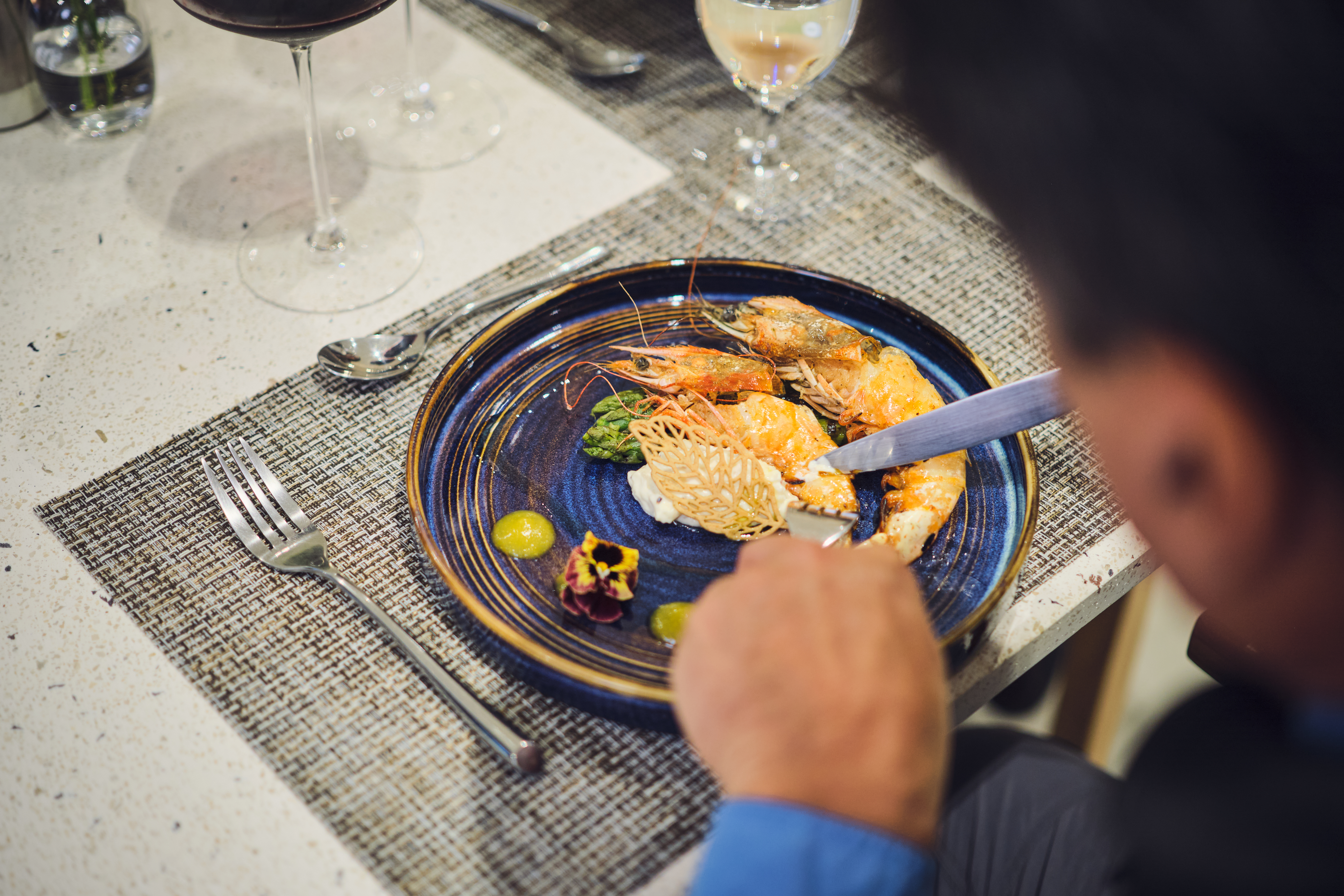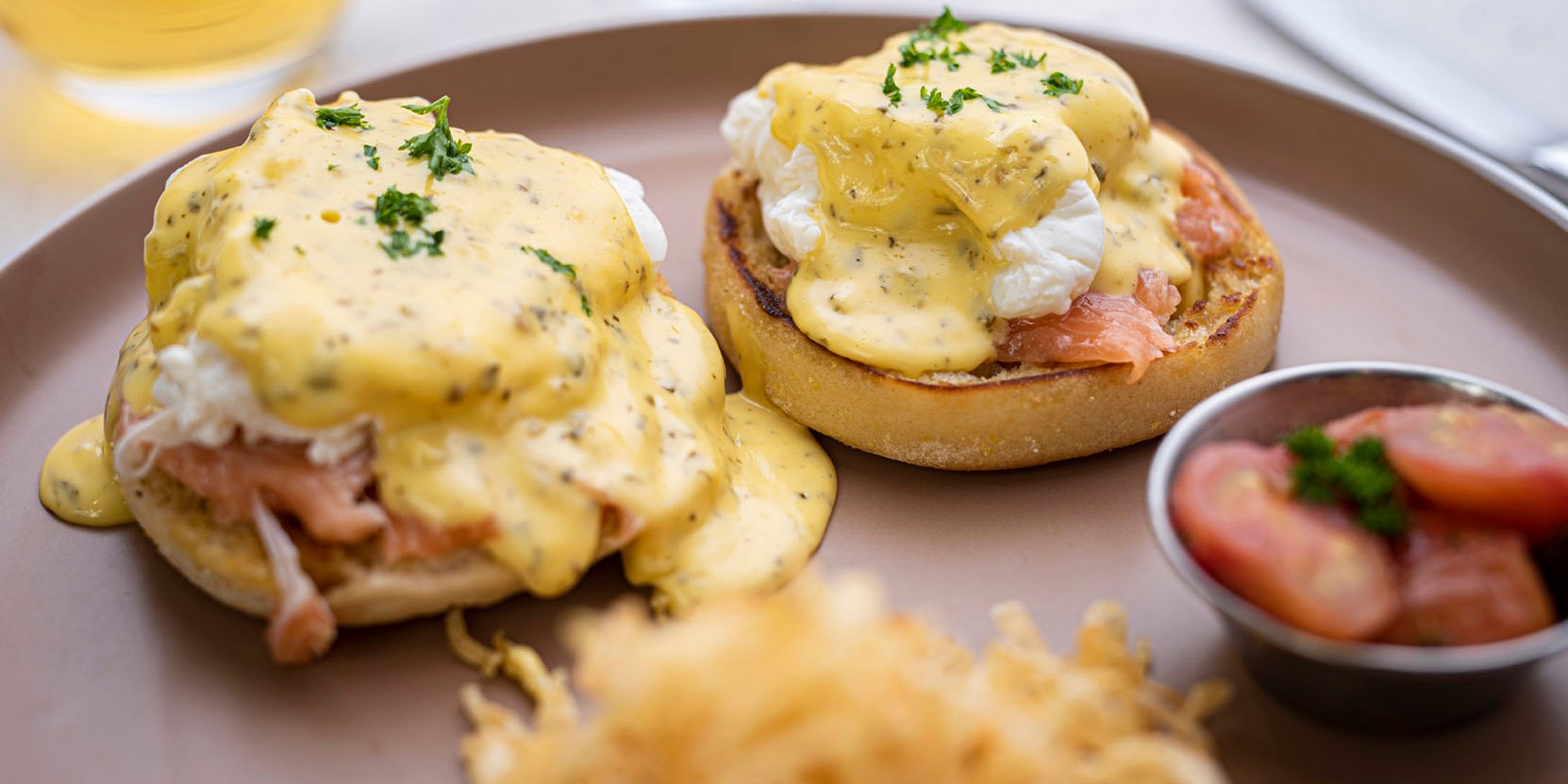A Look Inside Nectandra | A talk with Chef Roberto Cruz, Part 2

In our last post, we met Roberto, the artist behind all the deliciousness of our breakfasts at Nectandra Restaurant in the Ocotea Boutique Hotel.
In that post, which you can read by clicking here, we talked about him, his life, and his philosophy. This one will discuss cooking, ingredients, and ways to cook different things.
O. Can you tell us about the breakfast menu at Ocotea Boutique Hotel? Which is your favorite?
R. I like all the breakfast options on Ocotea. The management has tested each recipe, and they are collaborative creations of different people and myself.
For instance, Eggs Benedict is some of the best I cook, and the recipe is entirely exclusive to the hotel.
As per the suggestion of one of the owners, we use Bernaise sauce, a spicy variety of the original Hollandaise sauce, mainly because of salmon.
But the secrets of Nectandra's Eggs Benedict go beyond the sauce.
As with everything in Ocotea Boutique Hotel, each breakfast dish is created to the last detail to be a feast for the senses, a magnificent gift from the Monteverde fertile soils, sustainable farming, and the creativity and hard work of all the people involved.
From planting the seeds in the Monteverde fields to the food on the table, in Nectandra, what gets to the table is beautiful and delicious, with the right subtle aromas and perfect balance in the mouth.
As I said, I am a perfectionist.
O. Where do you see yourself in the future?
R. We all dream. I dream of having my own series of restaurants with selective and efficient processes that can achieve unique experiences for all customers.
However, that is a dream. I don't know if I will ever get it, but it's on my mind daily.
Sometimes we dream about some things, and once we get them, they are very different from what we believed they would be.
But what I want in life, I already have. Love, community, learning, and sharing.
O. What do you think about the "Slow Food" movement?
R. I think we all see different things depending on what we are living at the moment. If it is excellent, it is worth the wait, yes. But do I have the time for that if I am visiting Monteverde?
In the kitchen, we must find a balance to achieve the best quality in the least amount of time possible. That is a goal for all cooking processes.
But we all know that some dishes take time, and, from where I see it, we should take the time to taste and enjoy food as much as we enjoy walking in the forest.
O. What turns a dish into a memorable experience?
R. I don't think we can do it intentionally. It is in the essence of everything.
The perfect scenario is a beautiful restaurant with joyful people passionate about fantastic flavors and excellent customer service. However, as with "sazon," the magic of a place or a dish is beyond our control.
Like the "sazon" in the kitchen of my grandmother. My aunts and mother are great cooks, but they don't get close to my "abuela." When she passed away, her "sazon" died with her.
We can teach some of that and turn it into a process to be made over and over, but the soul of that recipe is in the person who creates the dish.
I think in a restaurant, it is in the soul of the place and the team that makes it. It is hard to describe, but we've all experienced it.
O. What would you do if you had everything you needed to create an authentic gastronomic experience for your customers?
R. I would love to create a space to share the process of creating a dish with the customers.
Not the usual "chop this vegetable" instruction, but genuinely teaching people why we cook a particular vegetable in a specific way or how we grill the meat to achieve a perfect point.
I think a gastronomical experience is all about sharing the soul.
We have all visited a place where someone is very happy and easy; a waitress, a cook, or a bartender whose vibe is contagious.
We all want to be like that every day. Sometimes we take our problems to the kitchen, but I strive to allow cooking to soothe and guide me out of my bitter moods.
For me, the kitchen is my safe place. I know what to do there. I feel at ease when I am there. And I would love to share the love, calmness, and joy of cooking with my customers.
O. What did the pandemic teach you?
R. To be happy with whatever I have. It doesn't mean not being ambitious, but enjoying right here and now is the most important thing. We don't need as much to be happy.
We have to appreciate what we have and what we don't have. There are good and bad days, but we are the ones to enjoy everything.
O. If you could, what would you tell your 18-year-old boy about life?
R. I would tell him to follow his heart. His instinct, not the mind, because it's complicated. The mind always wants safety.
Sometimes all we think we want is economic stability, and we sacrifice everything else for that.
When we are young, we want to have everything flashy, never mind the price. Because you are young, you cannot see the consequences. You don't see that you are growing old and are willing to sacrifice your time for material things.
Every day, we turn to martyrdom for comfort, fleeting pleasures, or material stuff that will rot within a few years.
I believe it's better to earn a little money building a fence on a farm than to have a big salary that you might have to spend on a psychologist if you're not happy.
I believe in doing what you love, or at least something you don't hate, even if it is a small thing.
The essential thing in life is peace of mind. For me, this is a contradiction with being a perfectionist. I lost a lot on the way just by striving to be perfect.
Now, what is important to me is to do a good job. I will be honest in every endeavor I do. with my customers and myself.
O. What do you strive for?
R. I think the kitchen is always stressful. But it is an exciting way of life. An exciting aspiration to get everything right. I want to become an Executive Chef.
An executive chef is a true expert, like an orchestra director. He has to know every single ingredient and part of his kitchen; he has to know about teamwork and how to be a leader, but also how to make it affordable and create profit, and to make it all work in an environment of joy and camaraderie.
I am way too young to be called a "chef." I am a cook with a chef's spirit simply because it takes a long time to know everything. You have to walk for decades to know all you have to know.
We all need to understand that there is a process to achieve everything, and I know I am on the way to getting there.
O. A friend of mine who is a professional violinist says that when he studied music, he lost some of the spontaneous pleasure of hearing music. Did you go through the same with food?
R. Yes, indeed. But I also believe that we all have to adapt and enjoy everything.
You cannot get to a hot dog stall and ask for the standards of a luxurious restaurant. It will always be up to you to adapt to and enjoy the different flavors, aromas, styles, and traditions.
For me, the best thing is to adapt to what it is and dare to find joy and pleasure in its flavors or move to a place where I find what I like, but to complain and mistreat a restaurant and its staff because I was not too fond of the food is not correct. We have to show respect for the work of other people.
O. Three indispensable tools?
R. A good knife, fire, and "sazon."
O. The indispensable ingredients?
R. Salt and water.
O. That simple?
R. Cooking is about the essence. I don't believe in molecular cuisine. In the end, we are eating plastic.
Flavors, aromas, and textures come from natural processes and make authentic soul gastronomy. We have evolved into a technological world, but by doing so, we may forget what makes us humans in the first place. Food goes to the basics, to the instinct, and our real delight in food is the pleasure of the senses in every bite.
For me, the best gastronomy comes from the soil and my soul. It is a magical process that evolves in a controlled process, and yes, it is simple.
To conclude this interview, I’d like to thank Roberto for the time he gave us for this interview and for his joyful and creative attitude towards life and cooking. And beyond that, I’d like to take a brief moment to show my own appreciation for the flavors of the magnificent Nectandra flavors and aromas.
Each dish is a gift for all senses, and the hard choice is to find a favorite among all of them. They all carry the joyful soul of Monteverde. And Roberto and his grandmother are also there somehow, smiling, and sharing the essence of the splendid Ocotea Boutique Hotel.





